Nails – Strength & Resiliencece

Why Nail Health Matters
Nails may be small, but they can reveal a lot about what is happening inside your body. Strong and smooth nails reflect proper nutrition and circulation, while brittle, ridged, or discolored nails often signal nutrient gaps, hydration problems, or even deeper health conditions. By paying attention to your nails and supporting them from within, you can restore strength and resilience.
Brittle & Weak Nails
The issue: Nails that split, peel, or break easily often result from inadequate nutrition and repeated exposure to harsh chemicals or detergents. Deficiencies in biotin, iron, or zinc weaken the nail structure, while low vitamin C reduces collagen support.
How it works: Without enough of these nutrients, keratin production slows down, oxygen supply to the nail bed drops, and the nail matrix cannot produce strong, durable tissue.
What helps:
- Biotin (eggs, nuts, seeds) to strengthen keratin, the main nail protein.
- Iron (lean red meat, spinach, lentils) to improve oxygen supply to the nail bed.
- Zinc (pumpkin seeds, beans, seafood) to aid repair and growth.
- Vitamin C (citrus fruits, peppers, berries) to support collagen and absorption of iron.
Slow Growth & Ridges
The issue: Nails that grow slowly or develop ridges may signal aging, poor circulation, or missing nutrients. Vertical ridges are common with age, but deep or uneven ridges often point to iron or vitamin deficiencies.
How it works: Iron and vitamin C are needed for proper blood flow and collagen production, while B-vitamins and magnesium support smooth renewal of cells in the nail matrix.
What helps:
- Iron (red meat, legumes) with Vitamin C (citrus, kiwi) for growth and structure.
- B-vitamins (whole grains, eggs) to support healthy cell turnover.
- Magnesium (leafy greens, nuts) to keep the nail structure smooth.
White Spots & Discoloration
The issue: Tiny white spots often appear after minor trauma, but recurring spots may signal zinc deficiency. Broader discoloration, such as yellowing, brown, or green tones, can point to fungal infections or systemic health issues.
How it works: Zinc is essential for healthy nail formation, while protein provides the amino acids needed for strong nail plates. A weak immune system also increases susceptibility to fungal changes.
What helps:
- Zinc (pumpkin seeds, legumes) to ensure orderly nail growth.
- Protein (chicken, tofu, beans) for structural support.
- Probiotics (yogurt, kefir, sauerkraut) to strengthen immunity and balance microbiota.
Pale or Spoon-Shaped Nails
The issue: Nails that look pale, thin, or curve upward like a spoon often signal iron deficiency anemia. This condition reduces oxygen delivery throughout the body, with nails being one of the first visible signs.
How it works: Low iron leads to low hemoglobin, which means the nail bed cannot receive enough oxygen and nutrients to form strong tissue.
What helps:
- Iron (lean meat, beans, spinach) to restore hemoglobin and oxygen flow.
- Vitamin C (citrus, bell peppers) to boost iron absorption.
- Protein (eggs, legumes) to supply building blocks for nail growth.
Lifestyle Tips for Healthier Nails
- Keep nails and cuticles moisturized to prevent dryness and splitting.
- Use gloves when cleaning or washing dishes to avoid chemical damage.
- Drink enough water daily for flexibility and smoothness.
- Avoid biting or picking nails, which weakens the nail bed.
Medical Note
Persistent nail changes, sudden discoloration, or spoon-shaped nails may point to systemic conditions such as anemia, thyroid imbalance, or fungal infections. Always consult a healthcare professional if changes are severe, painful, or long-lasting.
